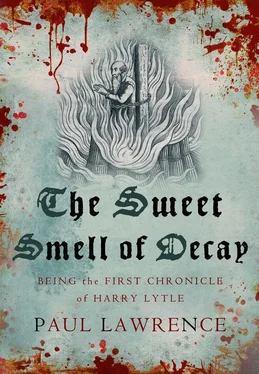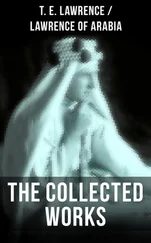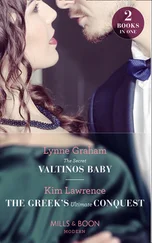Paul Lawrence - The Sweet Smell of Decay
Здесь есть возможность читать онлайн «Paul Lawrence - The Sweet Smell of Decay» весь текст электронной книги совершенно бесплатно (целиком полную версию без сокращений). В некоторых случаях можно слушать аудио, скачать через торрент в формате fb2 и присутствует краткое содержание. Год выпуска: 2014, ISBN: 2014, Издательство: Allison & Busby, Жанр: Исторический детектив, на английском языке. Описание произведения, (предисловие) а так же отзывы посетителей доступны на портале библиотеки ЛибКат.
- Название:The Sweet Smell of Decay
- Автор:
- Издательство:Allison & Busby
- Жанр:
- Год:2014
- ISBN:9780749015473
- Рейтинг книги:5 / 5. Голосов: 1
-
Избранное:Добавить в избранное
- Отзывы:
-
Ваша оценка:
- 100
- 1
- 2
- 3
- 4
- 5
The Sweet Smell of Decay: краткое содержание, описание и аннотация
Предлагаем к чтению аннотацию, описание, краткое содержание или предисловие (зависит от того, что написал сам автор книги «The Sweet Smell of Decay»). Если вы не нашли необходимую информацию о книге — напишите в комментариях, мы постараемся отыскать её.
The Sweet Smell of Decay — читать онлайн бесплатно полную книгу (весь текст) целиком
Ниже представлен текст книги, разбитый по страницам. Система сохранения места последней прочитанной страницы, позволяет с удобством читать онлайн бесплатно книгу «The Sweet Smell of Decay», без необходимости каждый раз заново искать на чём Вы остановились. Поставьте закладку, и сможете в любой момент перейти на страницу, на которой закончили чтение.
Интервал:
Закладка:
The judge shook his head and waggled his finger at me as if I were a naughty boy caught stealing apples. ‘Mr Lytle, it will not do. I appreciate that you were in a predicament, but desecrating a grave is ungodly and wicked.’
I contemplated asking him what he would have done in my place, but decided against it.
Dowling cleared his throat, seeking permission to intervene. ‘My Lord, it’s true. I went to Epsom not two days ago and spoke to this John Stow. He tells me that he was paid by one Robert Burton to tell his tale to Mr Lytle. He was assured that he would be visited only once, and then should deny all knowledge of the story.’
‘This would be the same Robert Burton that you suggest was employed by the Earl of Shrewsbury?’ The judge read back over notes that he had been scribing.
‘Aye, My Lord.’
‘And so you found that she was without child, Mr Lytle?’
‘Aye, sir.’
The judge sat back and pursed his lips. With his face so set he read back through his papers for ten or fifteen minutes. As he did so he made little noises with his mouth, as if all were becoming clear to him. Then he shuffled the papers into a pile, rested forwards onto his arms and regarded the Attorney General. ‘Sir, you are the prosecutor. What do you make of it?’
The Attorney General looked surprised. ‘My Lord, I think I would need to see this testimony referred to before venturing an opinion.’
‘Very wise,’ the judge nodded. ‘Let us go and review it together. The papers please.’ He gestured to Dowling with his head then stood, descended the steps and left the courtroom with the Attorney General trailing him disconsolately.
The rest of us were to wait. The jurors all looked vaguely worried, yet excited at the same time, not sure what had been going on, yet confident it was important. A few of them craned their necks in the direction that the judge had disappeared, wondering perhaps why they too hadn’t been invited to see this vital evidence. Dowling sat down in the witness box, so that all the rest of us could see was the top of his head. There was to be no talking, a rule that a couple of the clerks enforced by stalking the courtroom like carnivorous herons, hissing loudly at any that dared whisper.
I was feeling much more optimistic. Dowling had answered the judge’s questions so well that the case looked as white now as it had done black just the day before yesterday. Yet I was not so simple as to think that the truth would be the only factor that decided my fate. Foremost in my mind was seeking to understand why the judge had taken the Attorney General away. Certainly the Attorney General did not seem to be a happy man, yet could the private meeting have been called in the way of working out how to surmount the obstacle that Dowling’s testimony presented? Why should this judge be any different to the previous in terms of his objectives? Such were the thoughts going through my brain during the one hour or more that we sat in silence, waiting. Dowling’s head slowly disappeared and we were treated to the sound of a Scotsman snoring.
When they came back in I looked straight for the expression on the face of the Attorney General. If he bounced in full of new-found energy then I was in trouble. But he did not. Returning to his seat and sitting down he looked as he had before, only wearier. The judge didn’t bother climbing back up his perch but instead crooked fingers at me and at Dowling. I stood and was escorted by my two guards to the bench.
The judge looked different close up. Though his whiskers were very neatly trimmed you could see that they were white. The lines on his face were sort of velvety, suggesting to me that he was extremely advanced in years. Yet I imagined that there was nothing soft about his mind, for his eyes were calm and piercing. He gave the impression that he asked questions merely to confirm what he could already read on your face. Waving a hand in the direction of my shackles, he indicated with a frown to one of the guards that they should be removed. ‘Mr Lytle and Mr Dowling, will you come with me, please?’
‘Sit down,’ he commanded once we had reached his room. It was a small, oak-panelled room with a wooden bench across one wall and several large upholstered chairs scattered about the place. They were fine old chairs, but worn, with the leather fraying and holes beginning to develop like an old man’s liver spots.
The judge crossed his legs and placed his hands in a neat pile upon his lap. ‘Mr Dowling, please tell me what is going on.’
‘My Lord, I think you now have all the facts at your disposal.’
‘Mr Dowling, if I am to believe what I have heard today, then I can only conclude that the Earl of Shrewsbury engaged Mr Lytle here to establish a ludicrous plot that he himself had seeded.’
‘Indeed.’
‘In order to discredit Lord Keeling.’
‘Indeed.’
‘Why then, Mr Dowling, should the Earl of Shrewsbury have invented such a ludicrous story when all he had to do was to expose the fact that Lord Keeling was a Fifth Monarchist and had conspired to kill the King?’
‘He had no evidence, My Lord. Nor could he hope to persuade William Ormonde or Matthew Hewitt to testify.’ I repeated Prynne’s argument as it was spelt out to me.
‘Logical,’ Dowling nodded. ‘Shrewsbury was in no position to make accusations. Had he sent agents to seek out the evidence, then he may quickly have alerted Keeling to his activities and, God knows, no man would want to incur Keeling’s wrath. Keeling would have had him killed.’
‘So he made up this bizarre story.’
‘My Lord, it was very clever. Not only did he appoint Harry, but also he arranged for Harry to have an assistant from the Mayor’s office. This ensured that when Harry uncovered the story it would quickly be recounted to the Mayor without the Earl having to become involved. Indeed, I did take our findings to the Mayor to consult. Sooner or later rumours would have spread. Then Keeling would have been faced with the prospect of having to explain his poor relations with Ormonde, without reference to the real cause. It would have put Lord Keeling in a difficult position, almost certainly all that would have been required to tilt the scales against him.’
‘I don’t know if it was very clever or very foolish.’ The judge shook his head doubtfully. ‘You are sure of this?’
‘Aye, My Lord, and it was cleverer than you think. Shrewsbury knew Keeling well. If such a rumour had spread, then you can be sure that Keeling would have pursued Harry to the ends of the earth to have his vengeance. His part in the affair would thus be lost for ever.’
‘Which is nearly what happened, I am led to believe.’ The judge nodded at me, even looked me in the eye. He still looked unsure. He removed his periwig, revealing very short-cropped white bristles, and scratched himself. ‘How well do you know this man?’ He waved a hand in my direction while looking at Dowling.
‘We had not met before this affair, and so have not known each other long,’ Dowling turned to grin broadly, ‘but I feel I know him well enough now. He has plenty of blood in his body and not a little phlegm. He is rarely choleric and quick to rouse himself from melancholy.’
‘Indeed?’ The judge considered me. ‘And is he honest?’
‘Aye, My Lord, more honest than he knows. I can see why Shrewsbury picked him for the task. Shrewsbury’s only error, I think, was to discredit his intelligence.’
‘Aye,’ the judge nodded grimly, ‘one of the man’s worst faults. He is so busy scheming and plotting that he oft forgets that others are not wholly incapable themselves.’ He pulled his wig back on his head. ‘Ah well, time for a verdict.’
‘Sir!’ I leapt up.
The judge turned to me sombrely.
Читать дальшеИнтервал:
Закладка:
Похожие книги на «The Sweet Smell of Decay»
Представляем Вашему вниманию похожие книги на «The Sweet Smell of Decay» списком для выбора. Мы отобрали схожую по названию и смыслу литературу в надежде предоставить читателям больше вариантов отыскать новые, интересные, ещё непрочитанные произведения.
Обсуждение, отзывы о книге «The Sweet Smell of Decay» и просто собственные мнения читателей. Оставьте ваши комментарии, напишите, что Вы думаете о произведении, его смысле или главных героях. Укажите что конкретно понравилось, а что нет, и почему Вы так считаете.












